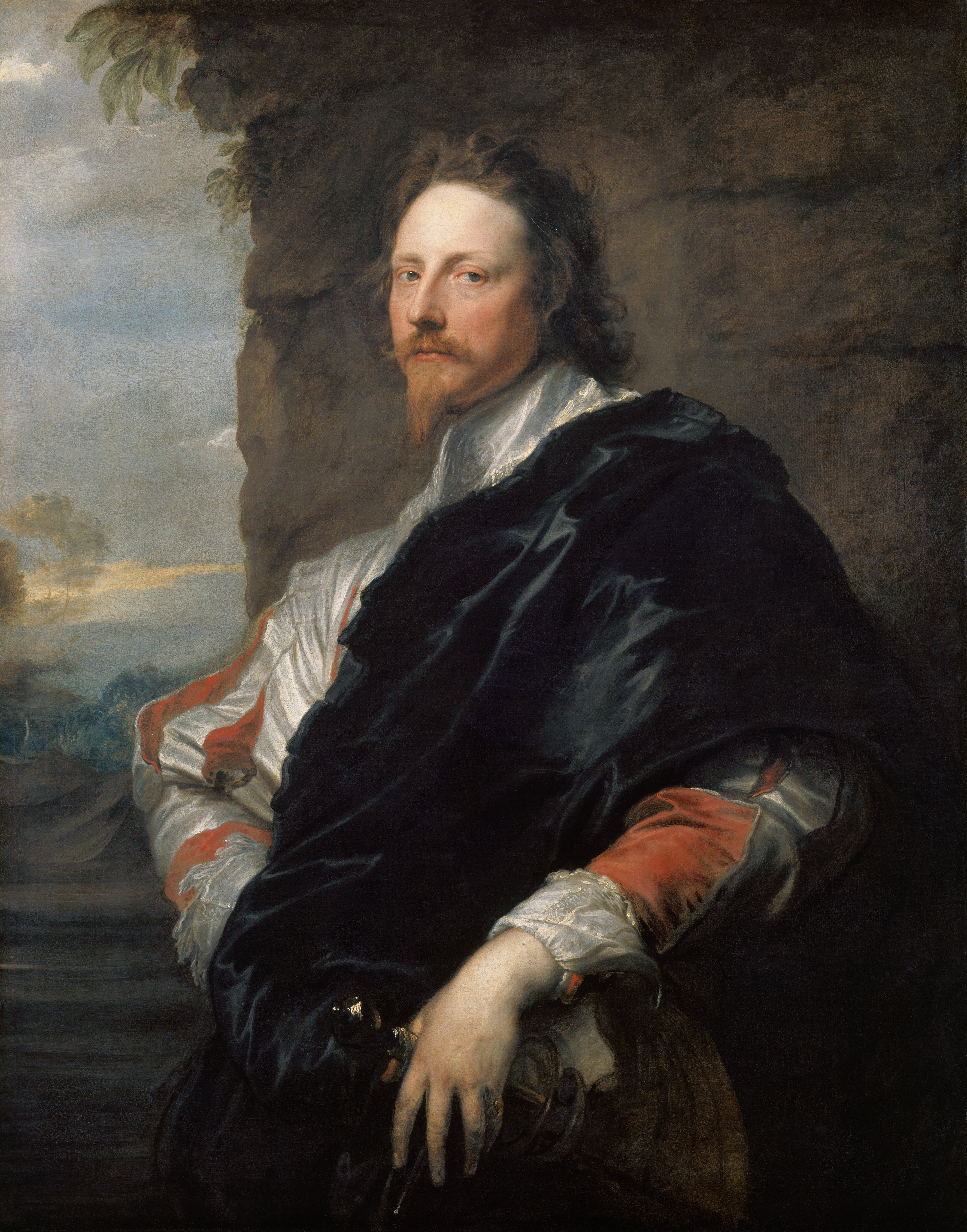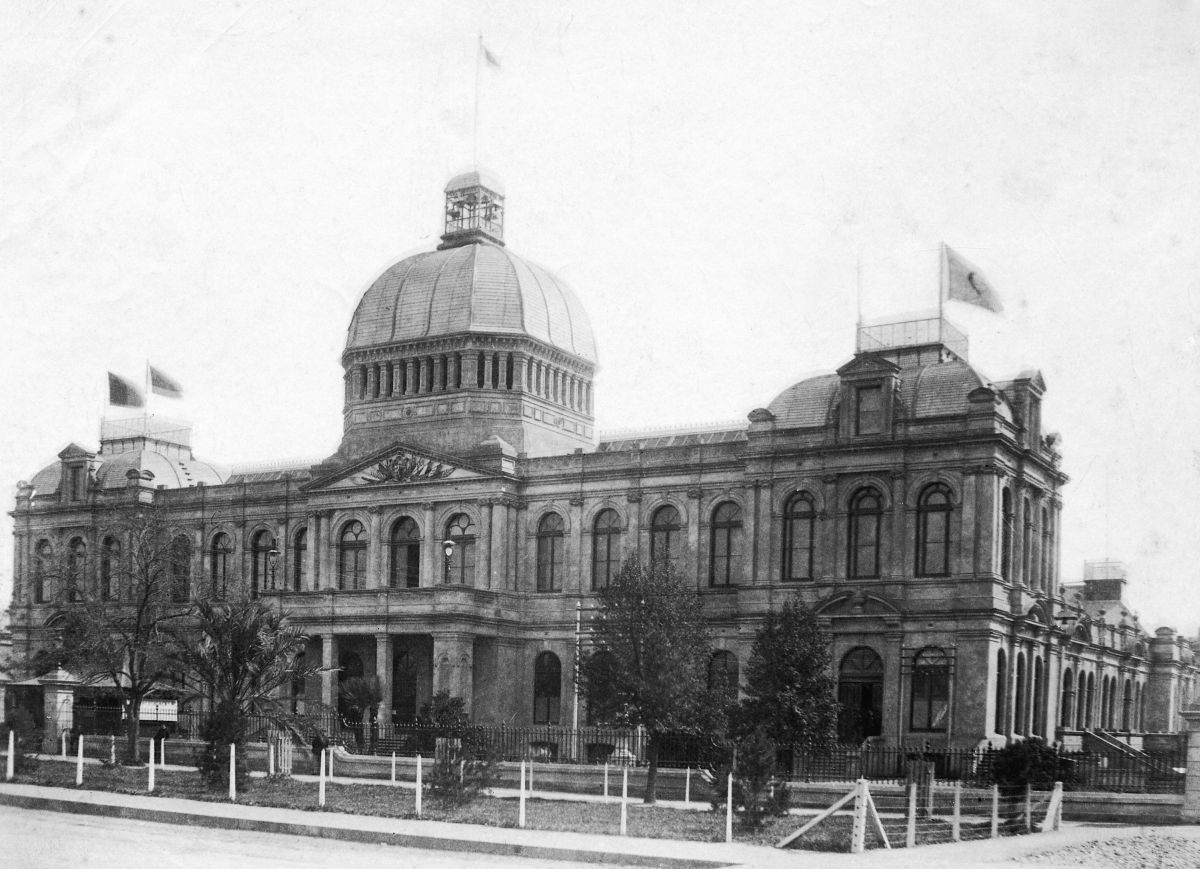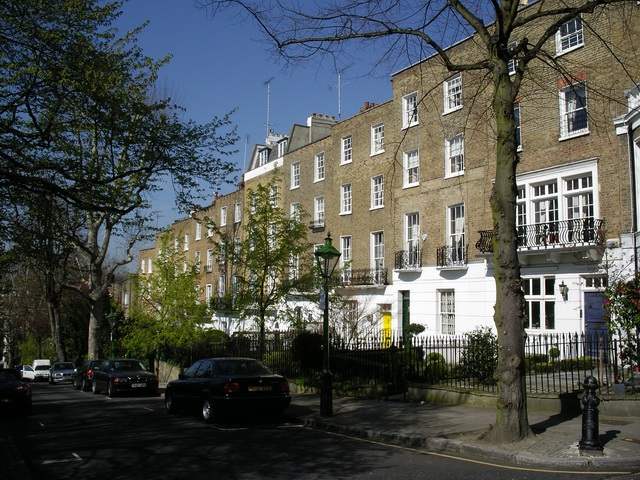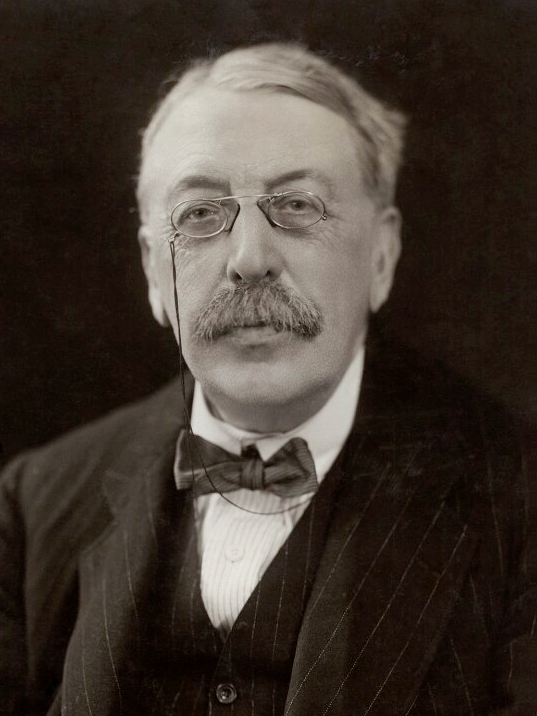|
Walford Davies
Sir Henry Walford Davies (6 September 1869 – 11 March 1941) was an English composer, organist, and educator who held the title Master of the King's Music from 1934 until 1941. He served with the Royal Air Force during the First World War, during which he composed the '' Royal Air Force March Past'', and was music adviser to the British Broadcasting Corporation, for whom he gave commended talks on music between 1924 and 1941. Life and career Early years Henry Walford Davies was born in the Shropshire town of Oswestry close to the border with Wales. He was the seventh of nine children of John Whitridge Davies and Susan, ''née'' Gregory, and the youngest of four surviving sons.Dibble, Jeremy"Davies, Sir (Henry) Walford (1869–1941)" ''Oxford Dictionary of National Biography'', Oxford University Press, online edition, January 2011, retrieved 6 December 2015 It was a musical family: Davies senior, an accountant by profession was a keen amateur musician, who founded and cond ... [...More Info...] [...Related Items...] OR: [Wikipedia] [Google] [Baidu] |
Master Of The Queen's Music
Master of the King's Music (or Master of the Queen's Music, or earlier Master of the King's Musick) is a post in the Royal Household of the United Kingdom. The holder of the post originally served the monarch of England, directing the court orchestra and composing or commissioning music as required. The post is broadly comparable to that of poet laureate. It is given to people eminent in the field of classical music; they have almost always been composers. Duties are not clearly stated, though it is generally expected the holder of the post will write music to commemorate important royal events, such as coronations, birthdays, anniversaries, marriages and deaths, and to accompany other ceremonial occasions. The individual may also act as the sovereign's adviser in musical matters. Since 2004 the appointment has been for a fixed term of ten years rather than for life, as previously. The King's Musick In the 14th century professional music-making in England was theoretically regu ... [...More Info...] [...Related Items...] OR: [Wikipedia] [Google] [Baidu] |
University Of Adelaide
The University of Adelaide (informally Adelaide University) is a public research university located in Adelaide, South Australia. Established in 1874, it is the third-oldest university in Australia. The university's main campus is located on North Terrace in the Adelaide city centre, adjacent to the Art Gallery of South Australia, the South Australian Museum, and the State Library of South Australia. The university has four campuses, three in South Australia: North Terrace campus in the city, Roseworthy campus at Roseworthy and Waite campus at Urrbrae, and one in Melbourne, Victoria. The university also operates out of other areas such as Thebarton, the National Wine Centre in the Adelaide Park Lands, and in Singapore through the Ngee Ann-Adelaide Education Centre. The University of Adelaide is composed of three faculties, with each containing constituent schools. These include the Faculty of Sciences, Engineering and Technology (SET), the Faculty of Health and Medi ... [...More Info...] [...Related Items...] OR: [Wikipedia] [Google] [Baidu] |
Christ Church, Hampstead
Christ Church, Hampstead, is a Church of England church in Hampstead, London. It is a church with particular connections to the old village of Hampstead and the Heath. Former Prime Minister Clement Attlee was married to his wife, Violet Attlee, at Christ Church, Hampstead. History The present church was erected between 1850 and 1852 to designs by the architect Samuel Daukes in the Early English Gothic style. In 1860 a timber gallery was erected by Sir Gilbert Scott (this was dismantled in the 1960s). In 1881–82 the north porch and aisle were added to designs by Ewan Christian. The church is constructed of Kentish ragstone with Portland stone dressings and slate roofs. In 1855 the church built a primary school adjacent, originally for infants. By the post-World War II period the school catered to kindergarten (ages 3 – 5) and primary (ages 5 – 11) mixed gender students, organized as one class per year. This was one of many such church-associated schools in the area ... [...More Info...] [...Related Items...] OR: [Wikipedia] [Google] [Baidu] |
St Anne's Church, Soho
Saint Anne's Church serves in the Church of England the Soho section of London. It was consecrated on 21 March 1686 by Bishop Henry Compton as the parish church of the new civil and ecclesiastical parish of St Anne, created from part of the parish of St Martin in the Fields. The church is under the Deanery of Westminster (St Margaret) in the Diocese of London. Parts of its churchyard around its west including tower are now the public park of St Anne's Gardens, accessed from the Shaftesbury Avenue end of Wardour Street. The church is accessed via a gate at that end of Dean Street. The parish, having spawned new churches to Saints Thomas and Peter in the era of compulsory church attendance, reconsolidated on Saint Anne's in 1945. History 1677–1799 The parish was dedicated to Saint Anne because Compton had been tutor to Princess Anne before she became Queen. Construction commenced in 1677 on a plot in what was then the countryside of Soho Fields, with William Talman and/ ... [...More Info...] [...Related Items...] OR: [Wikipedia] [Google] [Baidu] |
Campden Hill
Campden Hill is a hill in Kensington, West London, bounded by Holland Park Avenue on the north, Kensington High Street on the south, Kensington Palace Gardens on the east and Abbotsbury Road on the west. The name derives from the former ''Campden House'', built by Baptist Hicks, 1st Viscount Campden whose country seat was ''Campden House'' in the Gloucestershire town of Chipping Campden. The hill contains Holland Park, the former deer-park of Holland House, the remains of which important mansion house stand on the south-west corner of the hill. To the east of Holland House, the south-west side of the hill is characterized by large Victorian houses which are part of the Phillimore estate. Aubrey House is situated on top of Campden Hill. Campden Hill Square on the north-west side is formed of large Regency houses. The small street called Campden Hill runs from Campden Hill Road westward into Holland Park. It was built on part of the grounds of the former Bute House. Bute Ho ... [...More Info...] [...Related Items...] OR: [Wikipedia] [Google] [Baidu] |
Herbert Sharpe
Herbert Francis Sharpe, (1 March 1861 – 14 October 1925) was a British pianist, composer and music professor of the late 19th and early 20th centuries. He studied piano at the Royal College of Music in London later becoming professor there. He composed songs, chamber music and orchestral pieces. He was one of the founding professors of the Royal College of Music. Early life Herbert Sharpe was born in Halifax, West Yorkshire, England in 1861 the son of a Yorkshire merchant. He gained a piano scholarship (The Halifax Scholarship) at the National Training School for Music (now the Royal College of Music) in 1876. He went on to succeed Eugen d'Albert as the Queen's Scholar there studying under Arthur Sullivan, Ebenezer Prout, J. F. Barnett and Frederick Bridge. After finishing his studies in 1882, he gave many concerts in the provinces as well as in London where he organised several series of trio concerts between 1899 and 1902. He married Bertha Turrell in April 1884 and his son t ... [...More Info...] [...Related Items...] OR: [Wikipedia] [Google] [Baidu] |
Hubert Parry
Sir Charles Hubert Hastings Parry, 1st Baronet (27 February 18487 October 1918) was an English composer, teacher and historian of music. Born in Richmond Hill, Bournemouth, Richmond Hill in Bournemouth, Parry's first major works appeared in 1880. As a composer he is best known for the choral song "And did those feet in ancient time, Jerusalem", his 1902 setting for the coronation anthem "I was glad", the choral and orchestral ode ''Blest Pair of Sirens'', and the hymn tune "Repton", which sets the words "Dear Lord and Father of Mankind". His orchestral works include five symphonies and a set of Symphonic Variations. He also composed the music for ''Ode to Newfoundland'', the Newfoundland and Labrador provincial anthem (and former national anthem). After early attempts to work in insurance at his father's behest, Parry was taken up by George Grove, first as a contributor to Grove's massive ''The New Grove Dictionary of Music and Musicians, Dictionary of Music and Musicians'' in ... [...More Info...] [...Related Items...] OR: [Wikipedia] [Google] [Baidu] |
Charles Villiers Stanford
Sir Charles Villiers Stanford (30 September 1852 – 29 March 1924) was an Anglo-Irish composer, music teacher, and conductor of the late Romantic era. Born to a well-off and highly musical family in Dublin, Stanford was educated at the University of Cambridge before studying music in Leipzig and Berlin. He was instrumental in raising the status of the Cambridge University Musical Society, attracting international stars to perform with it. While still an undergraduate, Stanford was appointed organist of Trinity College, Cambridge. In 1882, aged 29, he was one of the founding professors of the Royal College of Music, where he taught composition for the rest of his life. From 1887 he was also Professor of Music at Cambridge. As a teacher, Stanford was sceptical about modernism, and based his instruction chiefly on classical principles as exemplified in the music of Brahms. Among his pupils were rising composers whose fame went on to surpass his own, such as Gustav Holst and ... [...More Info...] [...Related Items...] OR: [Wikipedia] [Google] [Baidu] |
Matthew Arnold
Matthew Arnold (24 December 1822 – 15 April 1888) was an English poet and cultural critic who worked as an inspector of schools. He was the son of Thomas Arnold, the celebrated headmaster of Rugby School, and brother to both Tom Arnold, literary professor, and William Delafield Arnold, novelist and colonial administrator. Matthew Arnold has been characterised as a sage writer, a type of writer who chastises and instructs the reader on contemporary social issues. He was also an inspector of schools for thirty-five years, and supported the concept of state-regulated secondary education. Early years He was the eldest son of Thomas Arnold and his wife Mary Penrose Arnold (1791–1873), born on 24 December 1822 at Laleham-on-Thames, Middlesex. John Keble stood as godfather to Matthew. In 1828, Thomas Arnold was appointed Headmaster of Rugby School, where the family took up residence, that year. From 1831, Arnold was tutored by his clerical uncle, John Buckland, in Laleham. I ... [...More Info...] [...Related Items...] OR: [Wikipedia] [Google] [Baidu] |
University Of Cambridge
, mottoeng = Literal: From here, light and sacred draughts. Non literal: From this place, we gain enlightenment and precious knowledge. , established = , other_name = The Chancellor, Masters and Scholars of the University of Cambridge , type = Public research university , endowment = £7.121 billion (including colleges) , budget = £2.308 billion (excluding colleges) , chancellor = The Lord Sainsbury of Turville , vice_chancellor = Anthony Freeling , students = 24,450 (2020) , undergrad = 12,850 (2020) , postgrad = 11,600 (2020) , city = Cambridge , country = England , campus_type = , sporting_affiliations = The Sporting Blue , colours = Cambridge Blue , website = , logo = University of Cambridge log ... [...More Info...] [...Related Items...] OR: [Wikipedia] [Google] [Baidu] |
Randall Davidson
Randall Thomas Davidson, 1st Baron Davidson of Lambeth, (7 April 1848 – 25 May 1930) was an Anglican priest who was Archbishop of Canterbury from 1903 to 1928. He was the longest-serving holder of the office since the Reformation, and the first to retire from it. Born in Edinburgh to a Scottish Presbyterian family, Davidson was educated at Harrow School, where he became an Anglican, and at Trinity College, Oxford, where he was largely untouched by the arguments and debates between adherents of the high-church and low-church factions of the Church of England. He was ordained in 1874, and, after a brief spell as a curate, he became chaplain and secretary to the Archbishop of Canterbury, Archibald Campbell Tait, in which post he became a confidant of Queen Victoria. He rose through the Church hierarchy, becoming Dean of Windsor (1883), Bishop of Rochester (1891) and Bishop of Winchester (1895). In 1903 he succeeded Frederick Temple as Archbishop of Canterbury, and remaine ... [...More Info...] [...Related Items...] OR: [Wikipedia] [Google] [Baidu] |
Walter Parratt
Sir Walter Parratt (10 February 184127 March 1924) was an English organist and composer. Biography Born in Huddersfield, son of a parish organist, Parratt began to play the pipe organ from an early age, and held posts as an organist while still a child. He was child prodigy: on one occasion he played Bach's complete '' The Well-Tempered Clavier'' by heart, without notice, at age ten. From 1854 to 1861 he was an organist at St Paul's Church in his native town and, as successor to John Stainer, in 1872 at Magdalen College, Oxford, where he remained for ten years. From 1882 he held the post of organist of St. George's Chapel, Windsor Castle. He became Heather Professor of Music at Oxford University in 1908, taking over from Hubert Parry. He became one of the foremost organ teachers of his day, with many important posts in Britain being filled by his students. He was president of the Royal College of Organists. Parratt was also a distinguished chess player, and was able to ... [...More Info...] [...Related Items...] OR: [Wikipedia] [Google] [Baidu] |










.jpg)